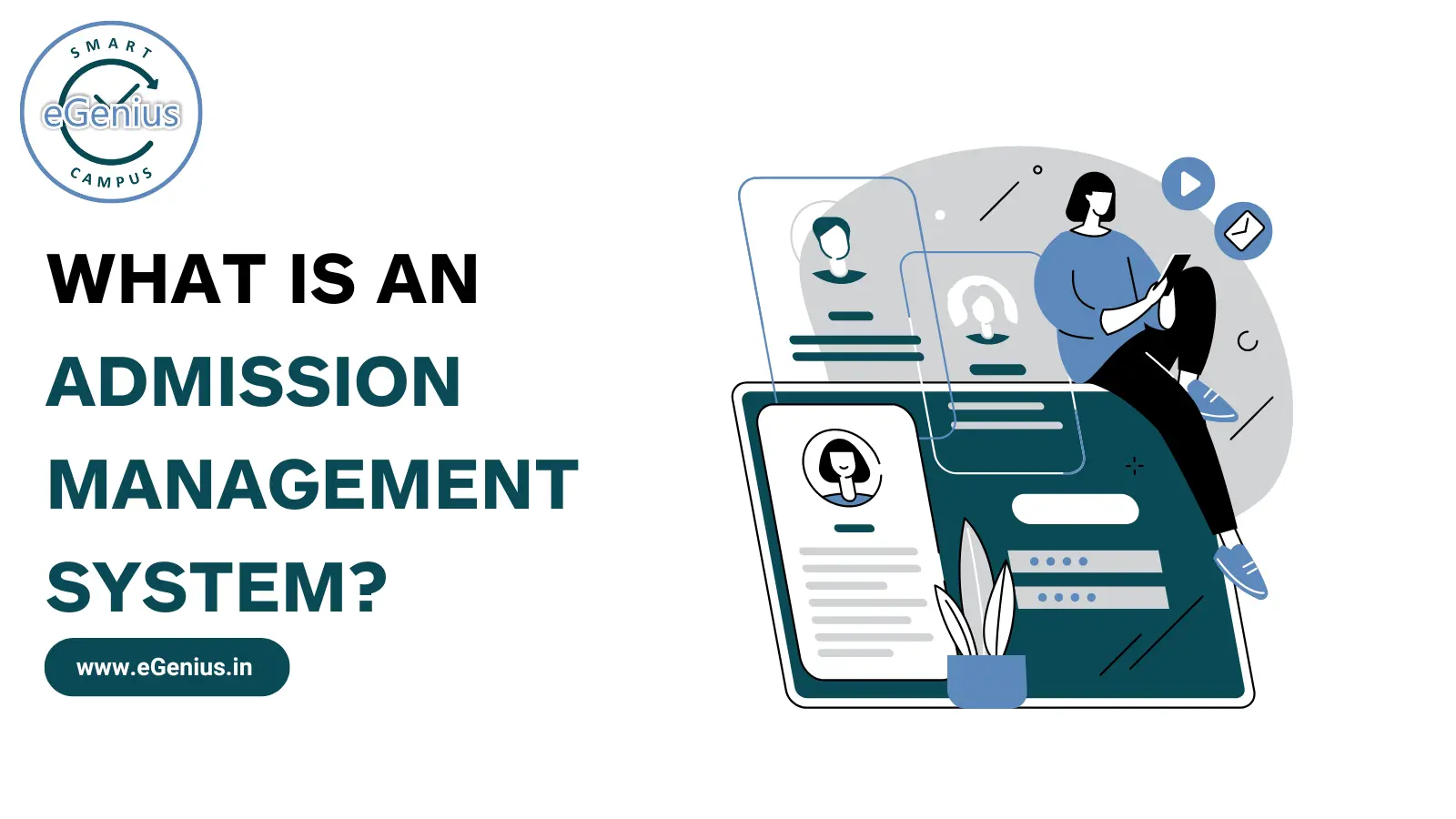In today’s rapidly evolving educational landscape, institutions are under increasing pressure to streamline their processes, improve efficiency, and provide better services to students. One of the most critical aspects of an educational institution’s operation is its admission process. Managing applications, evaluating candidates, and ensuring smooth communication with prospective students can be a daunting task, especially as the number of applicants continues to rise. This is where an Admission Management System comes into play. Designed to automate and simplify the entire admission process, this system has become an essential tool for educational institutions striving to maintain a competitive edge.
What is an Admission Management System?
An Admission Management System is a software solution specifically designed to handle the complex and multifaceted processes involved in student admissions. It integrates various functions such as application processing, candidate evaluation, document verification, interview scheduling, and communication management into a single, unified platform. This system not only streamlines the admission process but also ensures that it is carried out in a transparent, efficient, and error-free manner. By automating repetitive tasks and providing real-time access to data, Admission Software enables educational institutions to focus on selecting the best candidates while enhancing the overall experience for applicants.
The Need for an Admission Management System
- Increased Efficiency: Managing admissions manually can be time-consuming and prone to errors. An Admission Management System automates repetitive tasks, reducing the administrative burden on staff and allowing them to focus on more strategic activities.
- Improved Accuracy: Human errors in data entry or document handling can lead to significant issues during the admission process. Admission Software ensures accuracy by automating data processing and providing real-time validation.
- Enhanced Communication: Effective communication with prospective students is crucial during the admission process. An Admission Management System provides automated communication tools, ensuring that applicants are kept informed at every stage.
- Scalability: As educational institutions grow, the volume of applications they receive also increases. Admission Software can easily scale to handle a larger number of applications, ensuring that the process remains smooth and efficient.
- Data Security: Handling sensitive applicant data requires a robust security framework. An Admission Management System provides secure data storage and access controls, protecting sensitive information from unauthorized access.
Key Features of an Effective Admission Management System
- Application Tracking: Admission Software allows institutions to track applications from submission to acceptance. It provides a centralized platform where all applications can be monitored in real-time, ensuring that no application is overlooked.
- Document Management: Managing and verifying documents is a critical part of the admission process. An effective Admission Management System provides a secure and organized document management system, allowing institutions to easily store, retrieve, and verify applicant documents.
- Interview Scheduling: Coordinating interviews with applicants can be challenging, especially when dealing with a large number of candidates. Admission Software offers automated interview scheduling, enabling institutions to efficiently manage interview slots and ensure timely communication with applicants.
- Payment Processing: Handling application fees and other payments is an essential part of the admission process. An Admission Management System integrates payment processing, allowing applicants to pay fees online and ensuring that payments are tracked accurately.
- Reporting and Analytics: Data-driven decision-making is crucial in the admissions process. An Admission Software provides reporting and analytics tools that enable institutions to analyze application data, identify trends, and make informed decisions.
- Customization: Every institution has its own unique admission process. An effective Admission Management System offers customization options, allowing institutions to tailor the system to their specific needs and workflows.
- Integration with Other Systems: An Admission Software should seamlessly integrate with other systems used by the institution, such as student information systems, learning management systems, and financial management systems, to ensure a smooth flow of data.
Know How Fee Collection Software Helps Educational Institutions Go Paperless
Benefits of Implementing an Admission Management System
- Streamlined Processes: By automating and centralizing the admission process, an Admission Management System streamlines operations, reduces the time taken to process applications, and minimizes the chances of errors.
- Improved Decision-Making: With real-time access to applicant data and analytics tools, institutions can make more informed decisions when selecting candidates, ensuring that they choose the best fit for their programs.
- Enhanced Applicant Experience: An Admission System provides a user-friendly interface for applicants, making it easier for them to submit applications, track their progress, and communicate with the institution. This enhances the overall applicant experience and increases satisfaction.
- Cost Savings: Automating the admission process reduces the need for manual labor, resulting in significant cost savings for the institution. Additionally, the system’s scalability means that institutions can handle more applications without increasing costs.
- Data Security and Compliance: Admission Software ensures that applicant data is stored securely, and that the institution complies with data protection regulations. This reduces the risk of data breaches and protects the institution’s reputation.
- Increased Transparency: An Admission Management System provides transparency in the admission process by offering applicants real-time updates on their application status and ensuring that the process is fair and consistent.
How to Choose the Right Admission Management System
- Assess Your Needs: Before selecting an Admission Management System, it is essential to assess your institution’s specific needs. Consider the size of your institution, the volume of applications you receive, and the complexity of your admission process.
- Evaluate Features: Look for Admission Software that offers the features most relevant to your institution’s needs. Prioritize systems that provide customization options, integration capabilities, and robust reporting and analytics tools.
- Consider User Experience: The system should be user-friendly for both administrators and applicants. Look for a system with an intuitive interface, easy navigation, and comprehensive support and training resources.
- Check for Scalability: Choose an Admission System that can grow with your institution. The system should be able to handle an increasing number of applications without compromising performance.
- Ensure Data Security: Data security is paramount when handling sensitive applicant information. Ensure that the Admission Management System you choose complies with data protection regulations and offers robust security features.
- Seek Vendor Support: Reliable vendor support is crucial for the successful implementation and ongoing operation of the system. Choose a vendor that offers comprehensive support, including training, technical assistance, and regular updates.
eGenius Admission Management System has become an indispensable tool for educational institutions seeking to streamline their admission processes, improve efficiency, and enhance the applicant’s experience. By automating and centralizing various tasks, this system not only reduces administrative burdens but also ensures accuracy, transparency, and security. With the right Admission Software in place, institutions can focus on selecting the best candidates and providing a seamless admission experience for prospective students. As the educational landscape continues to evolve, investing in an Admission Management System is a strategic decision that can drive long-term success and competitiveness.
Know more about Campus ERP.














